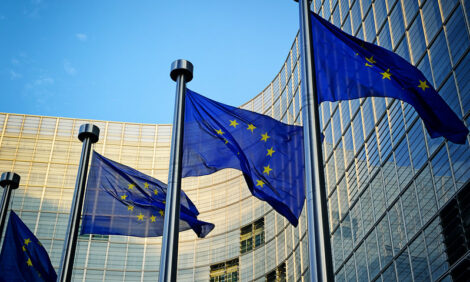



Vaccinating Cattle To Protect Human Health
AUSTRALIA - Speaking at the First International One Health Congress in Melbourne, Australia, Rick Culbert, President of Bioniche Food Safety, focused his presentation on the challenge of implementing cattle vaccination against E. coli O157 to reduce the risk of human infection.In the One Health Congress presentation, Mr Culbert noted that E. coli O157 is a global problem that requires a proactive solution.
"The fact that the organism does not make cattle ill presents an adoption challenge in the cattle industry," said Mr Culbert. "At the moment, cattle producers receive no direct benefit or compensation to justify the cost of vaccination against E. coli O157. However, there is an opportunity for the cattle industry to collaborate with public health to more effectively deal with this recurring issue."
Most strains of E. coli are harmless but some, like O157, can cause severe illness and can even be fatal when ingested by humans from contaminated meat, vegetables, other food products, or water. Human exposure and infection with E. coli O157 can result in serious health consequences, including abdominal pain and severe bloody diarrhea. In severe cases, kidney damage can occur and progress to serious complications and even death. Lingering, long-term medical conditions can persist in individuals exposed to the bacterium. These include post-infectious irritable bowel syndrome (PI-IBS), reduced kidney function, diabetes, hypertension and reactive arthritis.
An E. coli O157 outbreak last fall in the US was associated with the consumption of raw milk gouda cheese. Last November, seven cases of E. coli O157 human illness in the US were linked to the consumption of apple cider and eleven cases were linked to the consumption of contaminated food served at a Thanksgiving dinner. An outbreak last summer at a restaurant chain in Japan was traced to beef that was imported from Australia.
About the Bioniche E. coli O157 Vaccine (EconicheTM)
The Food Safety Division of Bioniche Life Sciences Inc. has worked with Canadian university researchers to develop and license a cattle vaccine against E. coli O157. This vaccine - trademarked EconicheTM - is meant to reduce the level of the bacterium in water, food and the environment and, in turn, reduce the potential infection of humans. It has been fully licensed in Canada since October, 2008. A conditional license is pending in the US.
EconicheTM has the potential to significantly reduce the amount of E. coli O157 shed into the environment by beef and dairy cattle. This organism does not cause illness in cattle, but cattle are the primary reservoir for it. Vaccination of cattle with EconicheTM can help reduce the risk of food and waterborne contamination with E. coli O157.
EconicheTM is manufactured at the Company's Belleville, Ontario site where, supported by the Ontario and Canadian governments, a $25-million expansion is taking place that is expected to be completed by the end of March, 2011.
More about E. coli O157
An estimated 100,000 cases of human infection with the E. coli O157 organism are reported each year in North America. Two to seven per cent of those people develop haemolytic uremic syndrome (HUS), a disease characterised by kidney failure. Five per cent of HUS patients die, many of them children and senior citizens, whose kidneys are more sensitive to damage.
TheCattleSite News Desk


